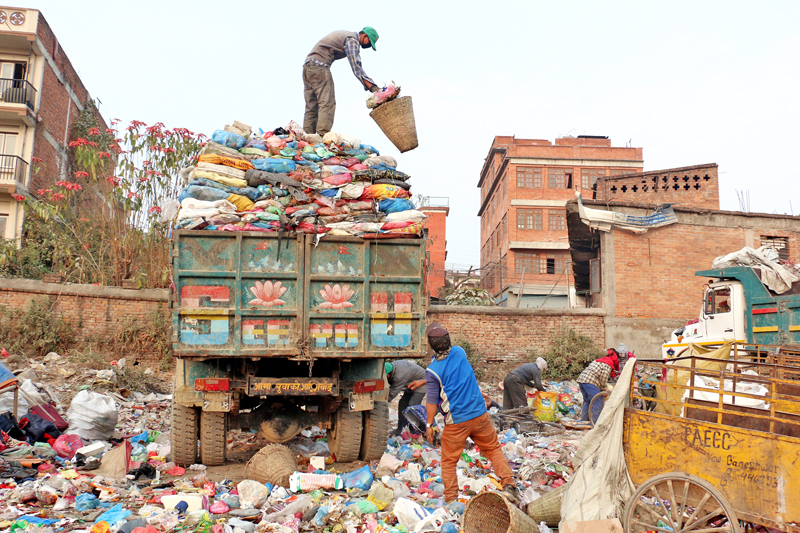Power generated from waste for the first time
Kathmandu, October 26
After years of continuous effort, the Kathmandu Metropolitan City has finally succeeded in generating electricity from waste for the first time in Nepal.
The KMC office said the first test conducted at Teku transfer station to generate electricity from waste on Sunday was successful.
Though the technical team had already produced biogas from waste before Dashain, electricity production took two more weeks.”Our project has become a success,” Gyanendra Karki, spokesperson at the KMC office, told The Himalayan Times, adding, “Now all that remains is the official inauguration of the project.”
He informed that the official inauguration programme will be organised after Tihar. KMC said that the 14 kilowatts of electricity generated by the waste-to-energy plant in Teku will be used by the KMC office.
Chief of the environment division of KMC and Director for the PISSWM Project Rabin Man Shrestha said this was part of the KMC’s attempt to produce electricity in a sustainable manner. The waste-to-energy plant equipment arrived in Kathmandu in three separate heavy trucks on August 28 that headed from Pune of India on July 26.
According to the KMC office, the three machines cost Rs 18.20 million. The KMC plans to replicate the project in other municipalities if the one-year pilot project succeeds. “Other municipalities have expressed their interest in the project, so the KMC is thinking of replicating the programme in other municipalities,” said KMC Spokesperson Karki.
KMC hopes the waste-to-energy project will make waste management in Kathmandu Valley easier. Besides generating power, the KMC plans to produce 96 kg gas, 300 kg bio-organic fertiliser, and 13,500 litres of purified water daily from the garbage collected at the Teku transfer station.
A total of 450 tonnes of garbage is produced in Kathmandu Valley every day. Nearly 63 per cent of garbage is organic waste.
A study by Alternative Energy Promotion Centre said Kathmandu Metropolitan City, Lalitpur Sub-Metropolitan City, Bhaktapur Municipality, Madhyapur Thimi Municipality, Kirtipur Municipality and Kalimati fruit and vegetable market alone produce 331 tonnes urban waste daily.
KMC had been facing a tough time managing household waste due to lack of resources and technology. The project is expected to assist the KMC in tackling problems created by household waste.






